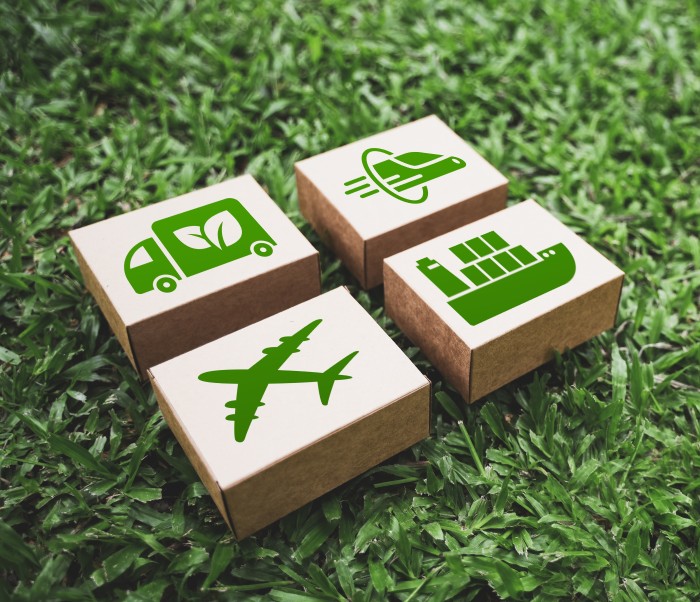Supply chain management
- Procurement Regulations
- Regulations on the Functioning of Procurement Collegial Bodies
- Customer Liaison Regulations
- Supplier Standards
Material topics
- Sustainable supply chain

Governance
GRI 3‑3, 2‑13
Supply chain sustainability is the cornerstone of En+ Group’s stability. In accordance with the Supplier Standards, the Company requires suppliers to comply with laws, maintain product or service quality control, conduct business ethically, and ensure human rights observance.
GRI 2‑13
Responsibility for procurement processes within the Company
Power segment
-
En+ Trading House
Metals segment
-
Procurement centres of divisions
Strategy
GRI 2‑6
The Power segment continued its efforts on import substitution of key goods and materials, and on ensuring stable supplies from overseas, and collaborated mainly with suppliers from Russia, Kazakhstan and China. The Metals segment is still predominantly sourcing from Russia and China; some of its counterparties are located in Kazakhstan, the Caribbean, Africa and Europe.
The bulk of En+ Group purchases consists of mineral raw materials (including alumina for the Metals segment), fuel and lubricants, machinery, as well as equipment maintenance and various types of work (engineering, commissioning, etc.).
Requirements for suppliers and contractors
GRI 308‑1, 308‑2, 414‑1, 414‑2
To form and maintain a stable supply chain, En+ Group carefully selects counterparties, assesses them against a number of criteria, including compliance with the principles of sustainable development. The Company screens both potential and existing suppliers.
GRI 308-1, 414-1, 414-2
| Metals segment | Power segment | |
|---|---|---|
| Potential and new suppliers |
|
|
| Current suppliers |
|
|
En+ Group routinely monitors the conformity of suppliers’ and contractors’ certifications to international standards (ISO 14001, ISO 45001, etc.). The Company also certifies its suppliers according to the requirements of IATF 16949 и GOST R 58139 and applies the advanced product quality planning approach (component manufacturing approval process).
The Metals segment is actively pursuing initiatives to establish a sustainable supply chain as part of its Sustainable Development Strategy until 2035. The Strategy seeks to create a sustainable and ethical supply chain for raw materials, finished products, goods, and services based on its own system of accreditation, assessment and verification of compliance with ESG criteria, covering 80% of suppliers by 2025 (100% by 2035).
Risk management
En+ Group has adopted a systematic approach to identify and evaluate supply chain risks on a regular basis. Risks identified in 2024 include:
- risks of disruptions in supply chains for goods and raw materials;
- risks of monopolistic pricing in the transportation market;
- risks of time or budget overruns for projects;
- risks of limited supplier selection due to the insufficient number of suppliers in the region.
To manage these risks and reduce the likelihood of violations and deviations, En+ Group conducts internal and external supplier audits at all stages of engagement with counterparties. Should the Company identify any violations, it retains the right to terminate its business relationship with such suppliers.
GRI 2‑24, 407‑1, 408‑1, 409‑1
To minimise the risks of human rights violations, En+ Group takes a responsible approach to supply chain management throughout the value creation process. En+ Group does not engage suppliers whose operations:
- violate the rights to freedom of association and collective bargaining;
- involve a high risk of child or forced labour.
Metrics and targets
| Goals | Status | Progress made in 2024 |
|---|---|---|
| Streamlining supplier assessment and supplier claims processes in the Power segment through automation | On track |
|
| Creating a sustainable and ethical supply chain for raw materials, finished products, goods, and services based on its own system of accreditation, assessment and verification of compliance with ESG criteria, covering 80% of suppliers by 2025 (100% by 2035) | On track | The Metals segment launched Supplier Online Account, an information and analytical system enabling suppliers to undergo voluntary ESG accreditation. In addition, for the purpose of a comprehensive assessment of counterparties in terms of ESG criteria and quality, the Metals segment held a contest for the best supplier for the first time and awarded three winners |

GRI 308‑2
In 2024, internal and external audits of the Company’s suppliers revealed no material actual or potential impact based on environmental and social criteria, therefore, no cases of termination of contracts on such grounds were recorded and no corrective measures were required.
GRI 2‑6, 203‑2, 204‑1
In an effort to bolster economic development within its regions of operation, En+ Group gives priority to procurement from local suppliers and counterparties registered in the country of the Company’s operations, where possible. In 2024, En+ Group’s procurement from local suppliers accounted for 80.2%, up by 18.1 p.p. compared to the previous reporting year due to the change in Power segment’s approach to identifying local suppliers. All suppliers registered in Russia are considered local suppliers.
In 2024, the Company maintained its support for small‑ and medium‑sized enterprises by offering various benefits, such as extending the grace period (up to seven days) for payments and simplifying the bidding process for tenders and auctions. Small‑ and medium‑sized enterprises accounted for 27.1% of the procurement spend in the reporting period.
Plans for 2025 and the medium term
- To approve an updated version of the Business Partner Code, which will stipulate stricter sustainability requirements for suppliers.
- To continue to extend the qualification of raw and other materials to the divisions and directorates of the Metals segment.
- To complete the automation of supplier qualification and rating processes based on the existing database.
- To consolidate works procurement with an extended planning horizon.
- To optimise business processes and reduce the duration of the procurement cycle for goods, works and services.